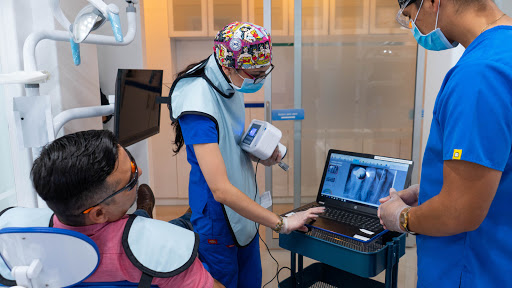Your gums are painfully swollen, and the pain is radiating all the way to your cheeks and ears. Sometimes, it even gives you a massive headache. Your dentist may advise that the source is your wisdom teeth, so it is time to extract or remove them. He will then recommend you to go to an oral surgeon for the procedure. If you have budget issues, you will want a clinic that does low cost wisdom teeth removal. The process of extraction itself is swift, but healing will take a few days. It will take time for you to feel back to normal.
4 Reasons for Taking Them Out
The 3rd set of molars in the back of your mouth are called wisdom teeth. They typically sprout when you are 17 to 25 years of age. Your dentist will take a closer look via an x-ray to see how they are growing. Those that require extraction do so for several reasons:
- The teeth are impacted and trapped in your jawbone or gums, causing pain. Since they are so far back into the end of your mouth, they may not be sprouting or growing normally.
- Your wisdom teeth are coming at the wrong angle, so they are exerting undue pressure as they press on your other teeth.
- Your mouth is small, and your jaw just has no space for an extra set of molars.
- Inefficient brushing technique will lead to cavities or gum disease. If you cannot brush or floss your wisdom teeth well, they may end up decayed.
8 Expectations Before Surgery
Once you have been given a referral for low-cost wisdom teeth removal, it is time to visit the clinic and speak with a dental surgeon about the procedure. During this appointment, you have to talk about several things:
- Discuss current health issues.
- Give a lowdown on daily maintenance medications.
- Speak about allergies.
- Ask questions that you may be curious about.
- Ask if you will be asleep or just under local anesthesia.
- Plan time off work or school because you need to rest after.
- If you have kids or pets at home, you will need to manage caregivers.
- Prepare for a ride to get home after the procedure because you should not drive after being under anesthesia for several hours.
What to do during the Procedure Itself
Wisdom teeth extraction should only take 45 minutes or less. You will be given anesthesia so you won’t feel any pain when the oral surgeon removes your wisdom teeth. Your doctor will suggest different kinds of anesthesia, depending on the gravity of your case. These are:
- Local: You will receive an injection in your mouth with an anesthetic. They use either novocaine, lidocaine, bupivacaine, or mepivacaine. Some surgeons opt for letting you breathe laughing gas, also known as nitrous oxide, to help you relax and sleep during surgery. Don’t worry because you will wake up and feel okay again once everything is done.
- IV sedation: This involves receiving anesthetics through a vein in your arm to make your drowsy and sleepy. As a result, you will not feel any discomfort or pain during the entire procedure.
- General Anesthesia: You will breathe in gas or meds through your mask. You will sleep through the whole procedure. You will wake up an hour or so after surgery.
During the extraction, your oral surgeon will have to slice your gum and get through your jawbone to take out the wisdom teeth. You can expect him to stitch the area so your wound will heal fast. However, as a special kind of thread will be used, it will dissolve after several days. Your dentist may also stuff gauze or cotton pads into your mouth to soak the blood.
Post-Surgery Care
The primary concern post-surgery is your response to anesthesia. Some people can drive and feel alert after local anesthesia. Some may even go back to work and engage in normal activities after. Of course, this all depends on your pain tolerance or severity of your case.
However, it is always best to err on the side of caution. Have someone on standby ready to drive you home, especially if you went through general anesthesia. This will slow down your senses and impair your reflexes. It would be a nightmare to get into an accident after your procedure.
Most of you will be given some anti-inflammatory or pain medication to help manage pain. Some people have little to no pain after oral surgery. However, expect some swelling and discomfort for three days or more. It will take time to heal your mouth completely. Follow your doctor’s aftercare plan so you can recover quickly.
Oral surgeons will suggest using a cold compress to manage the swelling. You must do gentle jaw exercises for a swift recovery. You will need to drink plenty of fluids, especially water, and eat a soft diet for the first couple of days. Ask when you can brush your teeth, along with the guidelines to do so. Take the pain medication as instructed. If your condition becomes worse with more swelling and bleeding or if you suffer a fever, call your doctor immediately.
Erica Jones is a freelance writer and a GOT fan. Apart from writing Technologies, she likes to read & write fiction. More than anything, she loves to spend her time with her family, explaining technologies to the elders.





